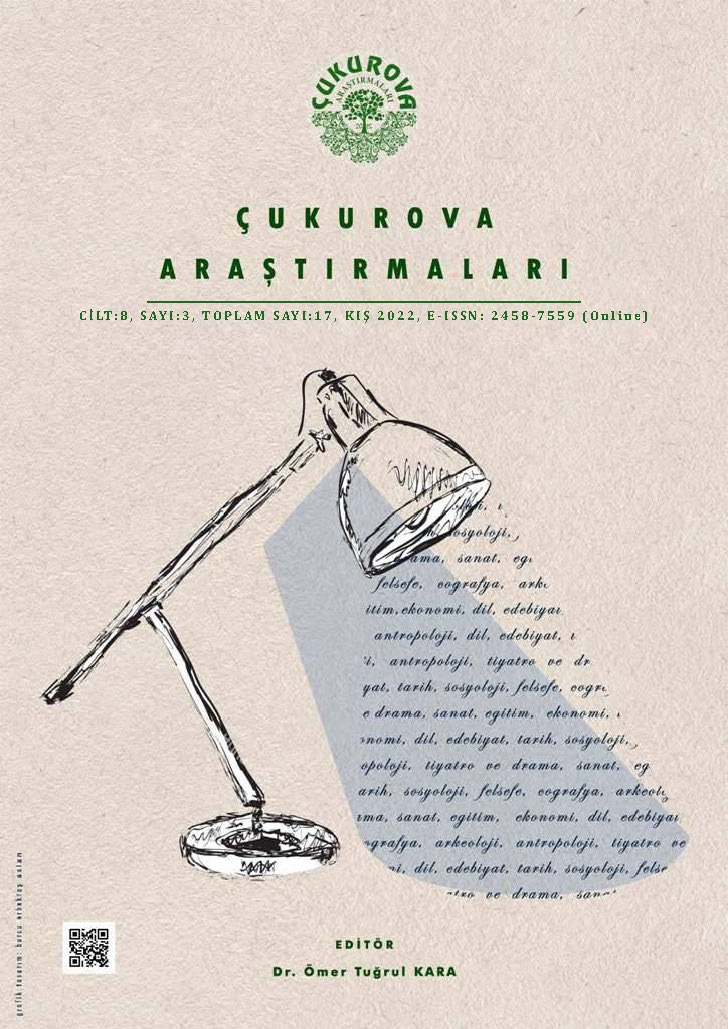Author :
Abstract
Yaklaşık 10.000 yıl önce Orta Doğu'da başlayan bilim, tarih boyunca birçok medeniyetin katkısıyla gelişmiş ve günümüzde modern şeklini almış evrensel bir insani değerdir. Bilim tarihine bakıldığında gelişim sürecinin dört ana aşamada devam ettiği söylenebilir. 1. Eski uygarlıklarda bilim (Mezopotamya ve Mısır uygarlıkları dönemi), 2. Yunan Uygarlığı'nın akılcı düşünce yapısının dünyayı ve evreni açıklamak üzere oluşturulduğu dönem, 3. Orta Çağ'da Müslüman coğrafyasındaki bilimsel gelişmeler, 4. Rönesans ve sonraki gelişmeler modern bilim dönemi. Bu çalışmada kullanılan iki kaynak, Clive Ponting ve William McNeill gibi bu alanda önemli bir kavrayışa sahip araştırmacıların dünya tarihleridir. Adnan Adıvar ve Ergun Türkcan'ın konuyla ilgili yaptığı çalışmalara da dünya ve Osmanlıdaki bilim tarihine değinmek gerekir. Osmanlı ilmî gelişimi iki ana başlık altında incelenebilir. Klasik Dönem Osmanlı Bilimi, medrese çevresinde oluşan ilk bilimsel ürünlerin ortaya çıktığı dönemi vurgularken, modernleşme döneminde Osmanlı bilimi, Batılılaşma sürecinde aktarılan bilim, eğitim ve kültür anlayışının ortaya koyduğu kurum ve eserleri içermektedir. Osmanlı ilim geleneğinin serencamının da böyle bir süreçte geliştiği görülmektedir. Evrensel bilim ve kültüre katkı açısından baktığımızda Osmanlı bilimi, Klasik ve Modern Dönemlerde ortaya konan bazı eserler ve kurumlar dışında yeterince özgün ürünler üretememiştir. Avrupa bilim ve kültürü ile özellikle Batı etkisinde gelişen ikinci dönemde yoğun bir bilgi alışverişi olmasına rağmen, Avrupa kurum ve eserlerinin benzerlerinin ötesinde dikkat çekici özgün ürünler üretilemedi.
Keywords
Abstract
Science, which first started in the Middle East about 10,000 years ago, is a universal human value that developed with the contribution of many civilizations throughout history and took its modern form today. Looking at the history of science, it can be said that its development process continued in four main phases. 1. Science in ancient civilizations (Mesopotamian and Egyptian civilizations period), 2. The period when the rational thought structure of Greek Civilization was formed to explain the world and the universe, 3. Scientific developments in Muslim geography in the Middle Ages, 4. Renaissance and subsequent developments modern science period. Two sources used in this study are the world histories of researchers with an important insight in this field, such as Clive Ponting and William McNeill. Adnan Adıvar and Ergun Türkcan's studies on the subject should also be mentioned on the history of science in the world and in the Ottoman Empire. Ottoman scientific development can be examined under two main headings. While Classical Period Ottoman Science emphasizes the period in which the first scientific products formed around the madrasah were revealed, Ottoman science in the modernization period includes the institutions and works that were revealed by the understanding of science, education and culture transferred in the Westernization process. The serencam of the Ottoman scientific tradition seems to have developed in such a process. When we look at it in terms of contribution to universal science and culture, Ottoman science could not produce enough original products, except for some works and institutions revealed in the Classical and Modern Periods. Although there was an intense exchange of information with European science and culture, especially in the second period, which developed under the influence of the West, remarkable original products could not be produced beyond the similar ones of European institutions and works.
Keywords
- Adıvar, A. (1987). Tarih boyunca ilim ve din (4. Baskı). Remzi Kitabevi.
- Altuntek, S. (1993). İlk Türk matbaasının kuruluşu ve İbrahim Müteferrika. Hacettepe Üniversitesi Edebiyat Fakültesi Dergisi, 10(1), 191-204.
- Aydın, C. (1989). Ali Kuşçu, Erişim Tarihi: 21.07.2022, https://islamansiklopedisi.org.tr/ali-kuscu.
- Çobanoğlu, A. V. (2002). Külliye, Erişim Tarihi: 17.07.2022, https://islamansiklopedisi.org.tr/kulliye.
- Doğan, A. (2021). Bilim ve teknolojinin gelişimi açısından Osmanlı ve batı üzerine bir değerlendirme. Econharran, 5(7), 1-21.
- Ebiri, G. (2021). Anadolu Selçuklu çağında şifahane bünyesinde yer alan türbeler. Vankulu Sosyal Araştırmalar Dergisi, (7), 253-276.
- Elibüyük, M. (2009). Tarihi coğrafya bakımından önemli bir kaynak: Cihannüma. Coğrafi Bilimler Dergisi, 7(2), 93-110.
- Fazlıoğlu, İ. (2001) Kadızâde-i Rûmî, Erişim Tarihi: 15.07.2022, https://islamansiklopedisi.org.tr/kadizade- i-rumi.
- Grant, J. (2006). Osmanlı gerilemesini yeniden düşünmek: 15-18. yüzyıllardaki askeri teknoloji yarışında Osmanlı İmparatorluğu'nun konumu, Osmanlı geriledi mi? (S. Aydüz, Çev). Etkileşim Yayınları.
- İhsanoğlu, E. (1995). Osmanlı bilim tarihi konusundaki araştırmalar hakkında bazı notlar. Osmanlı Bilimi Araştırmaları, (1), 47-68.
- İhsanoğlu, E. (1998). Osmanlı İmparatorluğunda bilim, teknoloji ve sanayide modernleşme gayretleri. Osmanlı Bilimi Araştırmaları, (2), 1-22.
- İhsanoğlu, E. ve Kaçar, M. (2002). Osmanlı İmparatorluğu'nda klasik bilim geleneğinin tarihçesi. Türkler Ansiklopedisi, 11, 155-174.
- İhsanoğlu, E. (2020). Science in the Ottoman Empire, studies on Ottoman science and culture (1. Baskı). Taylor and Francis.
- Kurtdaş, M. Ç. (2019). Osmanlı modernleşme sürecinde aydınlar ve bürokrasinin rolü. Fırat Üniversitesi Sosyal Bilimler Dergisi, 29(1), 399-411.
- Mcneill, W. H. (2002). Dünya tarihi (A. Şenel, Çev.). İmge Yayınları.
- Özcan, A. (2010). Eş-Şekāiku’n-Nu‘mâniyye, Erişim Tarihi: 15.07.2022, https://islamansiklopedisi.org.tr/es-sekaikun-numaniyye.
- Ponting, C. (2011). Yeni bir bakış açısıyla dünya tarihi (E. B. Özbilen, Çev.). Alfa Yayınları.
- Şeşen, R. (1988). Meşhur Osmanlı astronomu Takiyüddin Raşid’in soyu üzerine. Erdem, 4(10), 165-171.
- Taştekin, O. (2019). 18. yüzyıl ve sonrası Osmanlı eğitim kurumları. Cumhuriyet İlahiyat Dergisi, 23(3), 1143-1166.
- Topdemir, H. G. (2010). Takıyyüddin Er-Râsıd, Erişim Tarihi: 17.07.2022, https://islamansiklopedisi.org.tr/takiyyuddin-er-rasid.
- Türkcan, E. (2009). Dünya’da ve Türkiye’de bilim, teknoloji ve politika. Bilgi Üniversitesi Yayınları.
- Unat, Y. (2013). Zîc-İ Uluğ Bey. Erişim Tarihi: 21.07.2022, https://islamansiklopedisi.org.tr/zic-i-ulug-bey.
- Yorulmaz, N. (2018). Sahn-ı Seman’dan Darulfünun’a Osmanlı’da ilim ve fikir dünyası: âlimler, müesseseler ve fikri eserler xvııı. Yüzyıl. Journal of Istanbul Univ. Fac. of Theo., 29(1), 135-139.





